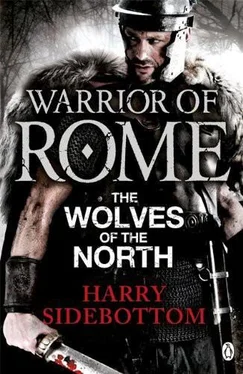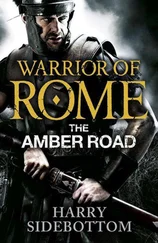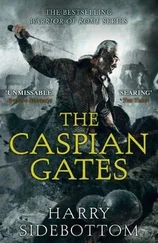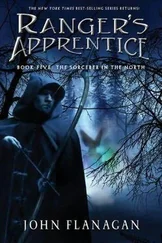Harry Sidebottom - The Wolves of the North
Здесь есть возможность читать онлайн «Harry Sidebottom - The Wolves of the North» весь текст электронной книги совершенно бесплатно (целиком полную версию без сокращений). В некоторых случаях можно слушать аудио, скачать через торрент в формате fb2 и присутствует краткое содержание. Жанр: Исторические приключения, на английском языке. Описание произведения, (предисловие) а так же отзывы посетителей доступны на портале библиотеки ЛибКат.
- Название:The Wolves of the North
- Автор:
- Жанр:
- Год:неизвестен
- ISBN:нет данных
- Рейтинг книги:3 / 5. Голосов: 1
-
Избранное:Добавить в избранное
- Отзывы:
-
Ваша оценка:
- 60
- 1
- 2
- 3
- 4
- 5
The Wolves of the North: краткое содержание, описание и аннотация
Предлагаем к чтению аннотацию, описание, краткое содержание или предисловие (зависит от того, что написал сам автор книги «The Wolves of the North»). Если вы не нашли необходимую информацию о книге — напишите в комментариях, мы постараемся отыскать её.
The Wolves of the North — читать онлайн бесплатно полную книгу (весь текст) целиком
Ниже представлен текст книги, разбитый по страницам. Система сохранения места последней прочитанной страницы, позволяет с удобством читать онлайн бесплатно книгу «The Wolves of the North», без необходимости каждый раз заново искать на чём Вы остановились. Поставьте закладку, и сможете в любой момент перейти на страницу, на которой закончили чтение.
Интервал:
Закладка:
Obviously, there was no question of abandoning their swords, daggers, Maximus’s various concealed knives, or Ballista’s gorytus. Both knew the straps would rub their shoulders raw within a couple of days.
And there was Rudolphus. The Herul lay curled around the arrow in his gut. The two in his back must have finished him off. They searched his body. He had an akinakes and a dagger, which they left, and some coins from the Bosporus, which they took; but nothing of real use. They had not the time to burn or bury him, but could not just leave him on the Steppe. They carried him down into the kurgan, and left him with their armour. Ballista closed his eyes and put a coin in his mouth for the ferryman. He was not sure the latter was right for a Herul, but it could do no harm.
There was only an hour or two of daylight left when they set out. They walked on the virgin grass to one side of the muddied path the horses had left. They did not hurry. There was no point. They had a long way to go.
They had not gone four miles before they saw the vultures. It was Hippothous’s horse. It had been unable to go on, and he had killed it. There was a deep stab wound in its throat. It had bled to death. It was still saddled and bridled, but Hippothous had taken anything of use from its packs.
Although it delayed them, Maximus cut meat from the carcass, stowed it in one of the packs and improvised straps from the leather of its tack. As they walked on, the vultures returned.
When darkness came, they did not stop. There was a line of trees a mile or so ahead. The trail was there when the moon showed between the ragged clouds of the rearguard of the storm.
At the stream, they got a fire going, eventually. The damp wood smoked, hissed and spat, and gave little heat. The horsemeat was raw inside a charred crust. They ate it, and drank water. Far off to the south, the storm flickered and grumbled beyond the horizon.
They did not speak of what had happened, or what might happen. They hardly spoke at all. Wrapped in his cloak, Ballista tried to empty his mind. With every thought came memories of Calgacus. He repeated Julia’s words to himself: the dead do not suffer, that is for those left behind. At last, he slept.
Maximus woke him. The sun was not yet up, the sky just paling in the east. The fire had gone out. Ballista was cold, tired, and his stomach was uneasy. They tried to eat the raw horsemeat. It made Ballista’s gorge rise. He persevered. He would need the sustenance.
The dawn came up behind them as they walked. Their shadows, canted and misshapen, marched ahead. The sky was clear. That was something. If it had rained as before, the trail would have been washed away.
With the warmth of the day, the Steppe came to life. First in patches, then in great swathes, the grass turned green again. Miraculous yellow flowers opened. It was as if the storm had turned back time, ushered in a second springtime. Birds sang, plovers swooped around them. There were butterflies, yellow like the flowers. All of it was superficial, false to Ballista’s eyes. It did not lighten his mood an iota.
They could not go wrong. The trail was the only thing to follow in the immensity of the plain. Ballista kept his eyes on it, a few steps in front of his feet. To look up was to accept the scale of the Steppe, to invite the admission of the futility of what they did.
They crossed small streams with banks that had been swept by flash floods from the storm. Their soil, where it had been undercut, was red; sometimes hanging like bloodied stalactites.
The north wind sang across the Steppe.
That evening, they halted early at a place where a stream broadened out into a mere. They concealed themselves in the cover around the edges. When the ducks had flighted and were on the water, in the lingering light that remained, Ballista shot one. The others rose up, clamorous in their fear.
Ballista lit a fire. Maximus plucked and dressed the bird. Cooked, it was an infinite improvement on the horsemeat.
Ballista did not want to talk about Calgacus. He could tell Maximus did not want to either. There was nothing else to talk about.
There were a few clouds that night, coming down from the north. They gave the moon a fugitive air, as if any one of them might conceal the wolf. Of course, some peoples did not think the moon was masculine, or that it would one day be eaten by a beast. For the Greeks, it was Selene; a goddess riding for eternity in a chariot drawn by shambly-footed oxen. He wondered what Calgacus had thought when he looked into a moonlit sky. He wondered what view Calgacus had held of an afterlife. They had never talked about it seriously. They never would now. It would be a comfort to believe he would be reunited with the old Caledonian, in Valhalla or somewhere. But it was hard to give it credence. This life was unforgiving; no reason to think the next would be better. If it existed.
The third day was much tougher. Ballista’s feet were blistered. He took off his boots and bandaged them. The bandages slipped, chafed, soon did no good. Maximus was walking badly too. The only advantage in their slower pace was the time it gave them to find the trail; it was getting harder to follow as the rejuvenated grass sprang up.
Twice — once to the north, once the south — they saw herds dotted and indistinct in the distance.
The Steppe stretched on, pitiless in its enormity. But they knew they were getting closer to Lake Maeotis. The smell of it was in the air, and the streams they had to cross were much fuller, broadening out into real rivers. Each of the latter was somehow shocking in its sudden declivity, as it brought trees and wildfowl, and a reflection of the sky, things near forgotten and almost unimaginable in the previous hours of their absence.
They cut thin branches to use as walking sticks.
They walked all day. They had nothing left to eat, and did not stop to hunt. As the sun began its final descent — they moved like old men now — they heard the sea birds. Looking up, Ballista saw the overgrown earthworks, and ditches full of brambles and thin trees of some long-abandoned fortification. Beyond, there were reed beds, and beyond them the open water of some quiet inlet. There was the thatched roof of a lone cottage. Off to the right, eight horses grazed in a water meadow.
Dogs hurtled out, three of them: vicious-looking, snarling, eyes popping.
The horses stamped away to the far end of the meadow.
Ballista and Maximus stood still, leaning on their walking sticks.
The dogs circled.
An elderly man clad in rags appeared out of the reeds, an eldritch figure with the low sun behind him. He whistled, and the dogs fell back a little. He put his right palm flat to his forehead.
Ballista cleared his throat to speak.
The old man spoke first. ‘He has taken the only boat. He made my son sail it.’ He used the language of Germania.
Neither Ballista nor Maximus said anything.
‘He said you would come.’ The aged fisherman held his hands out placatingly. ‘It is not our fault. Do not blame us. He was armed; a man of violence. What could we do?’ He fell to his knees.
‘When?’ Ballista said.
‘Yesterday morning, just after first light.’
Ballista felt as if something was broken inside him, something that had been keeping him upright.
‘How far are your neighbours?’ Maximus said.
The old man pointed to the south-east. ‘Near Tanais.’
‘How far?’
‘A long day’s walk.’
‘The other way?’
‘Further.’
Ballista spoke. ‘The horses are ours.’
‘Yes, of course. He said you would want them. We have looked after them.’ The old man showed his teeth like a dog which fears a beating. ‘We had no choice.’
‘Get off your knees. Do you have any food we could have?’
Читать дальшеИнтервал:
Закладка:
Похожие книги на «The Wolves of the North»
Представляем Вашему вниманию похожие книги на «The Wolves of the North» списком для выбора. Мы отобрали схожую по названию и смыслу литературу в надежде предоставить читателям больше вариантов отыскать новые, интересные, ещё непрочитанные произведения.
Обсуждение, отзывы о книге «The Wolves of the North» и просто собственные мнения читателей. Оставьте ваши комментарии, напишите, что Вы думаете о произведении, его смысле или главных героях. Укажите что конкретно понравилось, а что нет, и почему Вы так считаете.












